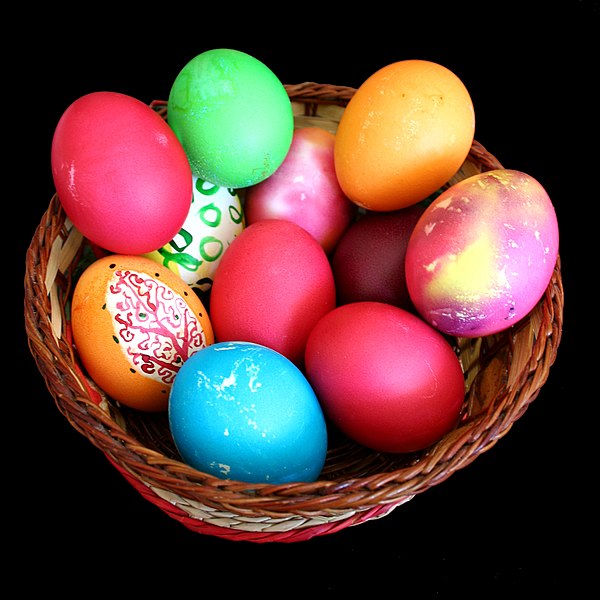Paskha is a Slavic festive dish made in Eastern Orthodox countries which consists of food that is forbidden during the fast of Great Lent. It is made during Holy Week and then brought to Church on Great Saturday to be blessed after the Paschal Vigil. The name of the dish comes from Pascha, the Eastern Orthodox celebration of Easter. Besides Russia, Ukraine, etc. Pasha is also often served in Finland.
Two paskhas with candles (with a kulich and Easter eggs in the background)
A paskha mould
An 18th-century Troitskaya church in St. Petersburg , known as "Kulich and Paskha", because the rotunda of the church resembles kulich, while the adjacent belfry has a pyramidal form reminiscent of paskha.
Boris Kustodiev's Easter Greetings (1912) shows traditional Russian khristosovanie (exchanging a triple kiss of peace), with such foods as Easter eggs, kulich and a white, triangular cheese paskha in the background
The holiday of Easter is associated with various Easter customs and foodways. Preparing, coloring, and decorating Easter eggs is one such popular tradition. Lamb is eaten in many countries, mirroring the Jewish Passover meal.
Abbacchio, a lamb preparation from the Italian Easter tradition
Decorated Easter eggs
Hot cross bun
Grasshopper pie








